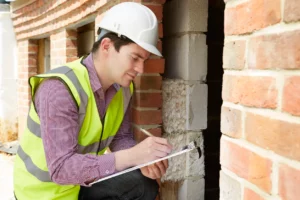
The Gen Z want to own their homes. An impressive 30% of 25-year-olds currently own their homes, beating out 28% of millennials and 27% of Gen Xers when they were 25.
Gen Z makes up people who were born between 1997 and 2012, which means many members of this generation are just now becoming adults while others are still in middle school. And yet, the drive for homeownership is already a core value of this generation.
In the vast majority of states, you need to be at least 18 years old to buy a house. In some states (Alabama, Nebraska, and Mississippi), the minimum age to buy a house ranges from 19 to 21. This is known as the age of majority.
There are specific reasons for these age limits that are set in place to protect both minors and lenders. In this article, we’ll share why age is important in home buying and how young adults and parents can purchase property.
Why Age Matters When Buying a House
There are several reasons why age is an important factor in buying a house. Most are set in place to protect American youth. What seems like an obstacle is actually a protection to keep people from committing fraud in their child’s name. For examples:
- A parent with poor finances won’t be able to buy a house using their child’s information and potentially ruin their credit.
- A teenager won’t agree to a contract that they don’t understand which could potentially harm them.
These laws prevent teens and young adults from getting taken advantage of, either by their parents, home sellers, or general fraudsters who want to take advantage of their naivety.
Age restrictions on home buying also protect lenders. Very few young adults have financial independence, much less a steady income that is large enough to own a house. They don’t have a credit history yet and they might not have a large down payment.
This makes lending to youth risky to banks, who have to take on the bulk of the housing cost without seeing a reliable payment and income history from the buyer.
As a result, younger buyers might encounter higher interest rates, even for FHA loans, which make their overall payments higher and the houses they are interested in more costly.
Can Minors Buy a House?
While minors cannot legally buy houses by themselves, a parent or guardian might be able to represent them.
Here are a few options for young people who want to buy property or who are set to inherit houses following the death of loved ones.
Trusts and Guardianships
Trustees and guardians both play a role in homeownership for minors. A guardian is someone who watches over a child day-to-day. For example, if two parents pass away, a child might live with an aunt or grandparent.
A trustee is in charge of a child’s financial assets. Using the same example, the trustee would manage the money and house that the parents left the child when they passed away. When a child enters adulthood, they can assume the responsibilities of property and money management.
Sometimes, guardians and trustees are the same people, but other times they are separate. This is meant to prevent guardian abuse, which occurs when a relative spends the money of the child or lets an asset fall into disrepair.
It’s unlikely that a child who lost their parents will actively buy a house before they reach the age of majority. These examples mostly refer to situations where a child inherits property before they come of age.
Co-signing and Joint Purchases
If a teenager is ready to buy before they reach the age of majority, they might be able to become a first-time homebuyer through the help of their parents. Co-signing on the property makes a loan much less risky because there is a second person who is willing to assume the debt.
If the child falls behind on their mortgage payments, the bank can turn to the parent for payments. This option is also used for buyers who cannot qualify for a mortgage, either because of a poor credit score or a down payment that is too small.
Consider this option if your child is intent on buying a house young. While this is certainly risky for your own personal finances, it could pay off if your child is responsible. You might be able to remove yourself from the loan once your child is old enough.
Even if your child doesn’t stay in the house for long, they might still be able to sell it for a profit and use the funds for a down payment on their next home.
What is the best age to buy a house?
While there is nothing wrong with buying a house at a young age, most people don’t become homeowners until they are older and more established.
In 2021, the average age of first-time homebuyers was 33. By 2022, the average age jumped to 36.
There are several reasons why people wait to buy their first homes, most of which have to do with their finances and lifestyle choices. Here are a few factors that play into the decision to purchase a home:
- These adults are more settled. Many people spend their twenties deciding where they want to live and what they value in a town or city. Becoming a first-time homebuyer is a way to put down roots.
- They have established their careers. Similarly, by the time they are in their 30s, many adults have finished their educations and have stable careers.
- Their income levels are higher. Stable careers lead to opportunities for advancement and higher salaries, which make homes more affordable.
- They are more likely to be married. The average age to get married in the United States is 30 for men and 28 for women. A couple can use two incomes to buy a home.
- They are more likely to have paid off their student loans. On average, it takes around 20 years to repay student loans, but some adults might pay off their debt faster.
- These adults have had more time to save for a down payment. The typical down payment for a first-time homebuyer was 7% in 2021. A homebuyer needs at least a 20% down payment to avoid paying private mortgage insurance (PMI). For a $400,000 house, a buyer needs a down payment between $28,000 and $80,000.
This doesn’t mean that you have to wait until you reach your 30s to buy a house. You can certainly buy a home and sell it if you want to change states or merge properties with a partner.
Instead, these points are meant to highlight common life milestones that many people reach that prepare them financially and emotionally for homeownership.
Pros of Buying a House At a Young Age
While some people might be worried about young people buying houses, there are some significant financial benefits to doing so. Here are a few reasons why you might want to buy a house as a young adult.
- Start building your wealth. If your mortgage monthly payments would be similar to your rent payments to a landlord, it might be financially advantageous to buy a home instead.
- Pay off your home at a young age. If you are ready to buy a home when you are young, you can pay off a large portion of the loan before most people purchase their first properties.
- Take advantage of a good market. Buying at an affordable time or when interest rates are low can help you secure a good deal on a property.
- You can always sell it. While you will have to live in the house for at least a few years, you can eventually sell the property and potentially turn a profit on it. You can use the revenue from the home sale to put a larger down payment on your next house.
The challenge is that not many young people are ready to buy just yet. They might not have a down payment saved up or have a stable income to cover the monthly payments and homeowners insurance.
Cons of Buying a House At a Young Age
There are several cons of buying as soon as you reach the age of majority. Many of them have to do with the financial state of young adults who are just leaving their parents’ homes for the first time.
- They lack a credit history. Payment history is one of the biggest factors that affect a credit score. Many young people lack a strong credit history to support their scores. A low credit score also leads to higher interest rates.
- They don’t have large down payments. While FHA loans don’t require significant down payments, putting money down can lower interest rates. A low down payment might make it harder to purchase a home with affordable monthly mortgage payments.
- Mortgage lenders look at debt-to-income ratios. The debt-to-income ratio compares what someone owes each month to their income. Young people still building their careers might have lower incomes that drive up these ratios.
- They could lose money if they sell too quickly. There is currently a seller’s market in many parts of the country. A young buyer could overpay now and potentially lose money if they want to move but the market has shifted.
These factors don’t make buying a house impossible, but they do make homeownership more expensive. Even with a large down payment, a poor credit score could drive up a young person’s mortgage payments and make it difficult for them to handle their expenses.
Hire a Realtor When You Are Ready for Homeownership
Other than the legal buying age of 18, there is no limit on when you can buy a house. It all depends on your potential down payment, credit history, and potential support from your family.
If you think you are ready to buy, meet with a real estate agent who can walk you through the home-buying process. They will make sure you are clear about the financial obligations that come with owning a home so you can move forward with the purchase process confidently.
To find a real estate agent in your area, turn to FastExpert. You can get to know some of the top Realtors in your area and their specialties. With a trusted agent by your side, you can close your home with ease.
- SEO Powered Content & PR Distribution. Get Amplified Today.
- PlatoData.Network Vertical Generative Ai. Empower Yourself. Access Here.
- PlatoAiStream. Web3 Intelligence. Knowledge Amplified. Access Here.
- PlatoESG. Carbon, CleanTech, Energy, Environment, Solar, Waste Management. Access Here.
- PlatoHealth. Biotech and Clinical Trials Intelligence. Access Here.
- Source: https://www.fastexpert.com/blog/how-old-do-you-have-to-be-to-buy-a-house/
- :has
- :is
- :not
- :where
- $UP
- 000
- 19
- 2012
- 2021
- 2022
- 25
- 28
- 33
- 36
- a
- Able
- About
- abuse
- actively
- actually
- Adult
- adults
- advancement
- ADvantage
- advantageous
- affect
- affordable
- age
- Agent
- Alabama
- All
- already
- also
- always
- American
- an
- and
- ARE
- AREA
- around
- article
- AS
- asset
- Assets
- assume
- At
- average
- avoid
- away
- Bank
- Banks
- BE
- because
- become
- becoming
- before
- behind
- benefits
- BEST
- between
- Biggest
- born
- both
- Building
- but
- buy
- BUYER..
- buyers
- Buying
- by
- CAN
- Can Get
- cannot
- careers
- certainly
- challenge
- change
- charge
- child
- choices
- City
- clear
- Close
- come
- committing
- Common
- confidently
- Cons
- contract
- Core
- Cost
- costly
- could
- country
- Couple
- cover
- credit
- Currently
- day-to-day
- deal
- Death
- Debt
- Deciding
- decision
- depends
- difficult
- do
- Doesn’t
- doing
- Dont
- down
- drive
- each
- ease
- either
- encounter
- enough
- Enters
- established
- estate
- Even
- eventually
- example
- examples
- expenses
- expensive
- factor
- factors
- Fall
- Falls
- family
- faster
- few
- Finances
- financial
- Financial independence
- financially
- Find
- First
- first time
- following
- For
- Forward
- fraud
- fraudsters
- from
- funds
- Gen
- Gen Z
- General
- generation
- get
- getting
- good
- guardian
- Guardians
- had
- handle
- harder
- harm
- Have
- help
- here
- higher
- Highlight
- history
- Home
- Homes
- House
- houses
- housing
- How
- HTTPS
- if
- important
- impossible
- impressive
- in
- Income
- independence
- information
- instead
- insurance
- intent
- interest
- Interest Rates
- interested
- into
- IT
- joint
- jpg
- just
- Keep
- Know
- known
- Lack
- landlord
- large
- larger
- Laws
- lead
- Leads
- least
- leaving
- left
- Legal
- legally
- lenders
- lending
- less
- Lets
- levels
- Life
- lifestyle
- like
- likely
- LIMIT
- limits
- live
- loan
- Loans
- Long
- Look
- lose
- lost
- loved
- Low
- lower
- Majority
- make
- MAKES
- manage
- management
- many
- many people
- Market
- marketplace
- Matters
- mean
- means
- meant
- Meet
- Members
- Men
- Merge
- Middle
- might
- Milestones
- Millennials
- minimum
- minors
- Mississippi
- money
- money management
- Month
- monthly
- more
- Mortgage
- most
- mostly
- move
- move forward
- much
- name
- Nebraska
- Need
- needs
- next
- no
- nothing
- now
- obligations
- obstacle
- of
- off
- Old
- older
- on
- once
- ONE
- ones
- opportunities
- Option
- Options
- or
- Other
- Others
- out
- over
- overall
- own
- owning
- paid
- parents
- partner
- parts
- pass
- passed
- Pay
- paying
- payment
- payments
- People
- person
- personal
- Place
- plato
- Plato Data Intelligence
- PlatoData
- Play
- pmi
- points
- poor
- potential
- potentially
- Prepare
- prevent
- private
- process
- Profit
- properties
- property
- protect
- protection
- purchase
- put
- Putting
- qualify
- quickly
- Rates
- ratio
- reach
- ready
- real
- real estate
- realtor
- reasons
- refer
- relative
- reliable
- remove
- Rent
- repay
- represent
- require
- responsibilities
- responsible
- restrictions
- result
- revenue
- Risky
- Role
- roots
- ruin
- salaries
- sale
- same
- Save
- saved
- School
- score
- scores
- Second
- secure
- seeing
- seems
- sell
- Sellers
- separate
- set
- Settled
- several
- Share
- shifted
- side
- significant
- similar
- Similarly
- situations
- small
- So
- some
- Someone
- Soon
- Specialties
- specific
- spend
- stable
- State
- States
- stay
- steady
- Still
- strong
- Student
- support
- sure
- Take
- taken
- takes
- teenager
- Teens
- than
- that
- The
- their
- Them
- themselves
- There.
- These
- they
- think
- this
- Through
- time
- times
- to
- too
- top
- town
- trusted
- Trustee
- TURN
- two
- typical
- understand
- United
- United States
- unlikely
- until
- use
- used
- using
- value
- Vast
- very
- wait
- walk
- want
- was
- watches
- Way..
- Wealth
- were
- What
- when
- which
- while
- WHO
- why
- will
- willing
- with
- without
- worried
- would
- Wrong
- years
- yet
- you
- young
- Younger
- Your
- yourself
- youth
- zephyrnet













